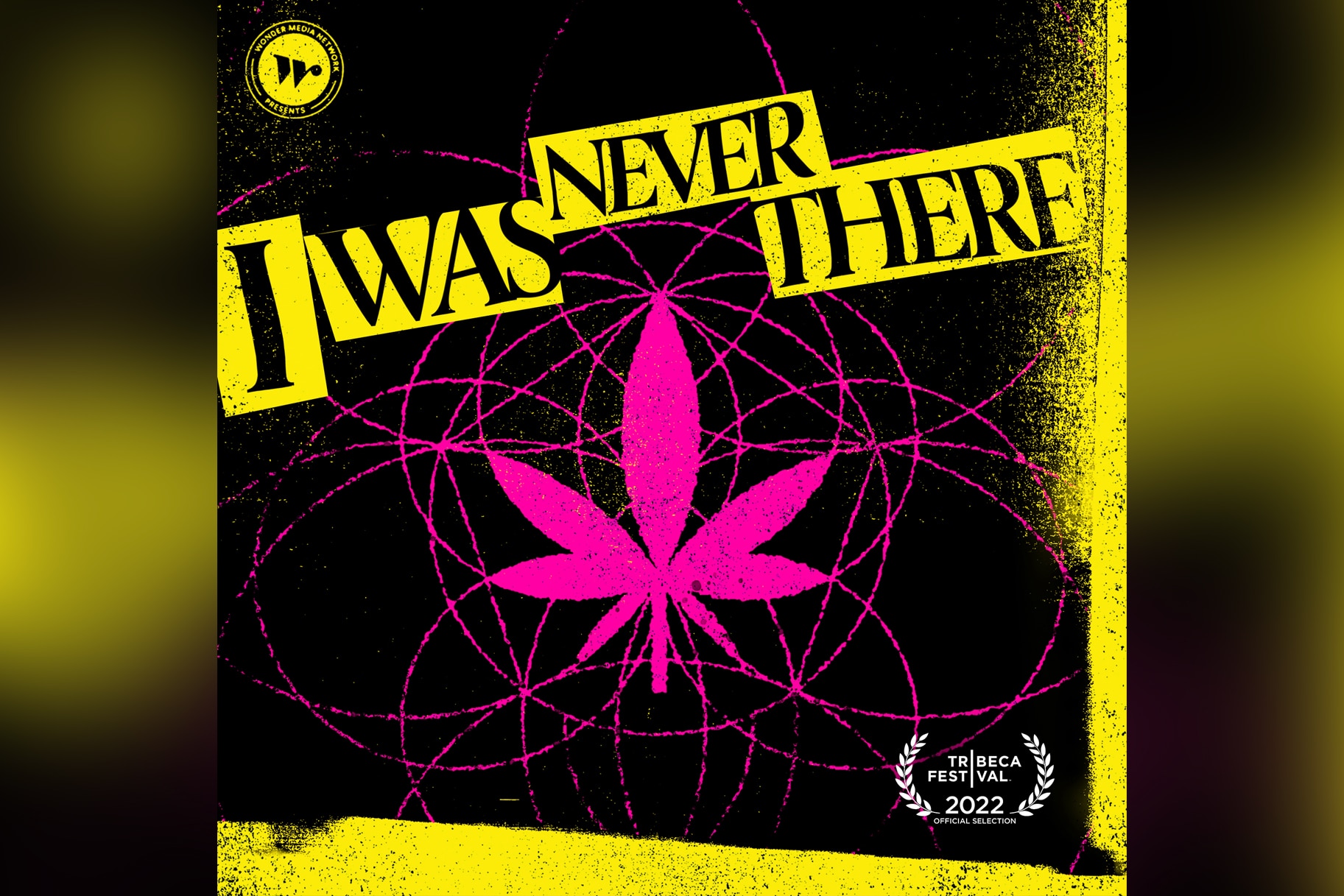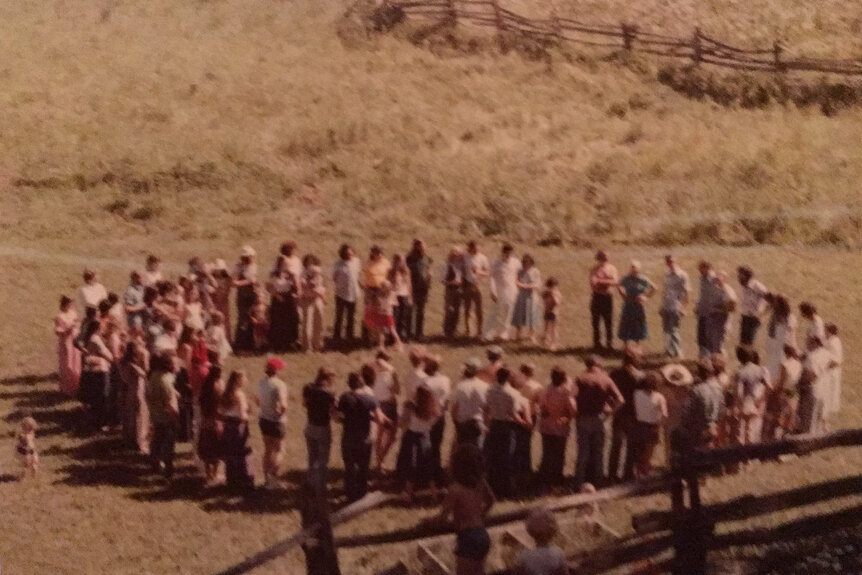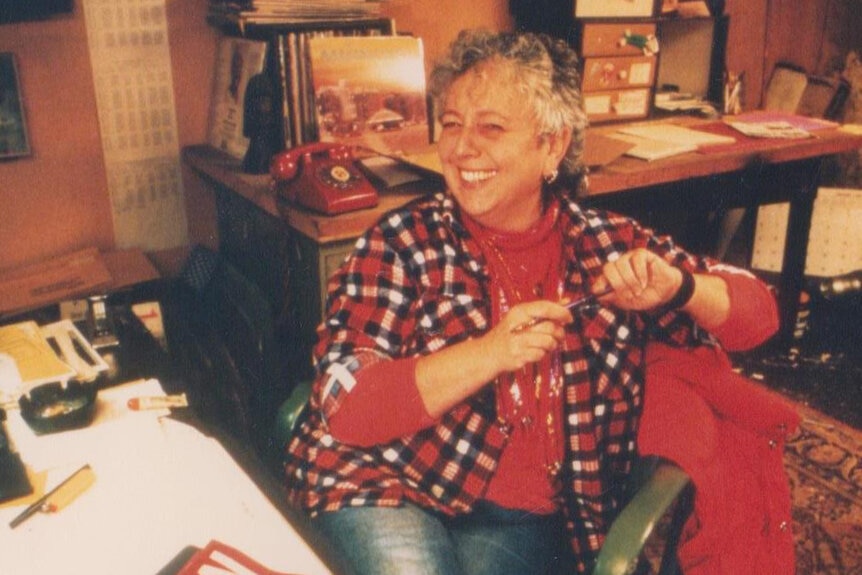Create a free profile to get unlimited access to exclusive videos, breaking news, sweepstakes, and more!
Tribeca-Selected Podcast Breathes Life Into 1988 Disappearance Of Rock And Roll Bar Owner
In the new podcast "I Was Never There," a mother and daughter revisit the countercultural movement in West Virginia and the disappearance of their friend, Marsha 'Mudd' Ferber, who owned a music venue featuring some of rock's biggest names.

Mother and daughter take listeners through the countercultural movement in West Virginia to discuss the 1988 disappearance of a woman known as “Mudd.”
Jamie Zelermyer and her mother, Karen Zelermyer, breathe new life into the bewildering disappearance of family friend Marsha “Mudd” Ferber, 47, in “I Was Never There.” Wonder Media Network’s latest podcast is already making waves in the true-crime ethos, celebrating its world premiere as an Official Selection for audio storytelling at the 2022 Tribeca Film Festival.
The story promises to take audiences through Ferber’s life, including her “evolution from suburban housewife to back-to-the-land hippie to drug-dealing bar owner,” until Ferber disappeared in April of 1988 from her Morgantown music venue and bar.
Jamie and Karen also delve into their own pasts in the series. Karen, a young mother, moved “off the grid” with her family to rural Braxton County in the 70s when Jamie was just 10 days old. There, she met Ferber, who came with her own group of people called “The Mudd Family” to live among like-minded people in a hippie commune in central West Virginia.
“The times are not that different in terms of what we’re living through right now and what my parents were dealing with in the 1970s,” Jamie told Oxygen.com. “Environmental issues and corruption and impeachments. I feel like they lived with so much hope back then. They took risks.”
Later, the Zelermyers and Ferber separately moved to Morgantown, where Feber opened a bar called The Underground Railroad in 1982. Karen worked at the music venue in its early days, describing Ferber as her “heart sister” and “an entrepreneur who hated capitalism.”
The Underground Railroad headlined some of rock’s biggest names, including the Red Hot Chili Peppers, The Flaming Lips and Dead Kennedys. Some of these musicians speak with the Zelermyers in “I Was Never There.”
“It was a beautiful, groovy place for a lot of years,” Karen told Oxygen.com. “In the early years, when I was there, it was all about The Grateful Dead and reggae. And as music evolved into the 80s, it became much more heavy metal and punk.”
“Marsha was a folk hero,” Jamie told Oxygen.com. “She really changed the culture of Morgantown, West Virginia.”
Marsha, who lived progressively in the otherwise sleepy, Appalachian town, was also well-known for selling marijuana — and, for her friends, it was a normal part of life as a people involved in the culture of free love and psychedelics. During The Underground Railroad’s glory days, the Zelermyers lived in Marsha’s commune.
“We shared a life together,” said Karen. “I thought we were going to grow old together.”
Karen told Oxygen.com that shortly before Marsha disappeared, she's planned to open a hippie retirement community in Florida. But then Marsha suddenly vanished without a trace.
“She literally disappeared one day,” said Karen. “She went out with her friends and said she’d be back in a few hours. Nobody ever saw her again.”
The podcast examines the various rumors that have persisted throughout the decades, with Karen saying that drugs seemed to be at the center of Marsha’s disappearance. Theories included Marsha getting in over her head, the witness protection program and leaving town of her own volition.
Other theories centered around something more sinister — including her peers disposing of her body after an overdose and foul play.
According to the Community United Effort, Marsha left her vehicle, purse, and other personal belongings at her home when she disappeared.
“It was hard to believe that she would just voluntarily leave, but as Jamie and I did this investigation and looked into all these theories, at some point, every one of them seemed plausible,” said Karen.
Jamie told Oxygen.com that they worked closely with the Morgantown Police Department, who were very helpful in their research, but that early investigations had been “shoddy.”
“For a person who was a pillar in their community to just vanish out of nowhere, it’s not normal,” said Jamie. “The fact that they never found her, that they were never able to connect any of the dots to any of the leads, it’s a little bizarre, to be honest.”
“I Was Never There” focuses on the changing times — including when harder drugs, such as heroin and cocaine, began trickling into the lives of those who hoped to continue their back-to-the-land ways. For those closest to Ferber, her disappearance seemed to bring a shift to all their ideals.
“We were this cohort of young people, for the most part, we were in our 20s and early 30s, who were so filled with passion and hope about our ability to change the world,” Karen told Oxygen.com. “Or at least create a world that people could look to as a better way to live"
"And the question for us was, ‘What happened?’," she added. "Because obviously, we didn’t succeed in changing the world.”
“And people disappeared,” Jamie added.
The Zelermyers created an Instagram page featuring photos of Ferber and The Underground Railroad.
Episodes of “I Was Never There” can be found here.
Anyone with information about the disappearance of Marsha “Mudd” Ferber can call the Morgantown Police at 1-910-343-1131.





























